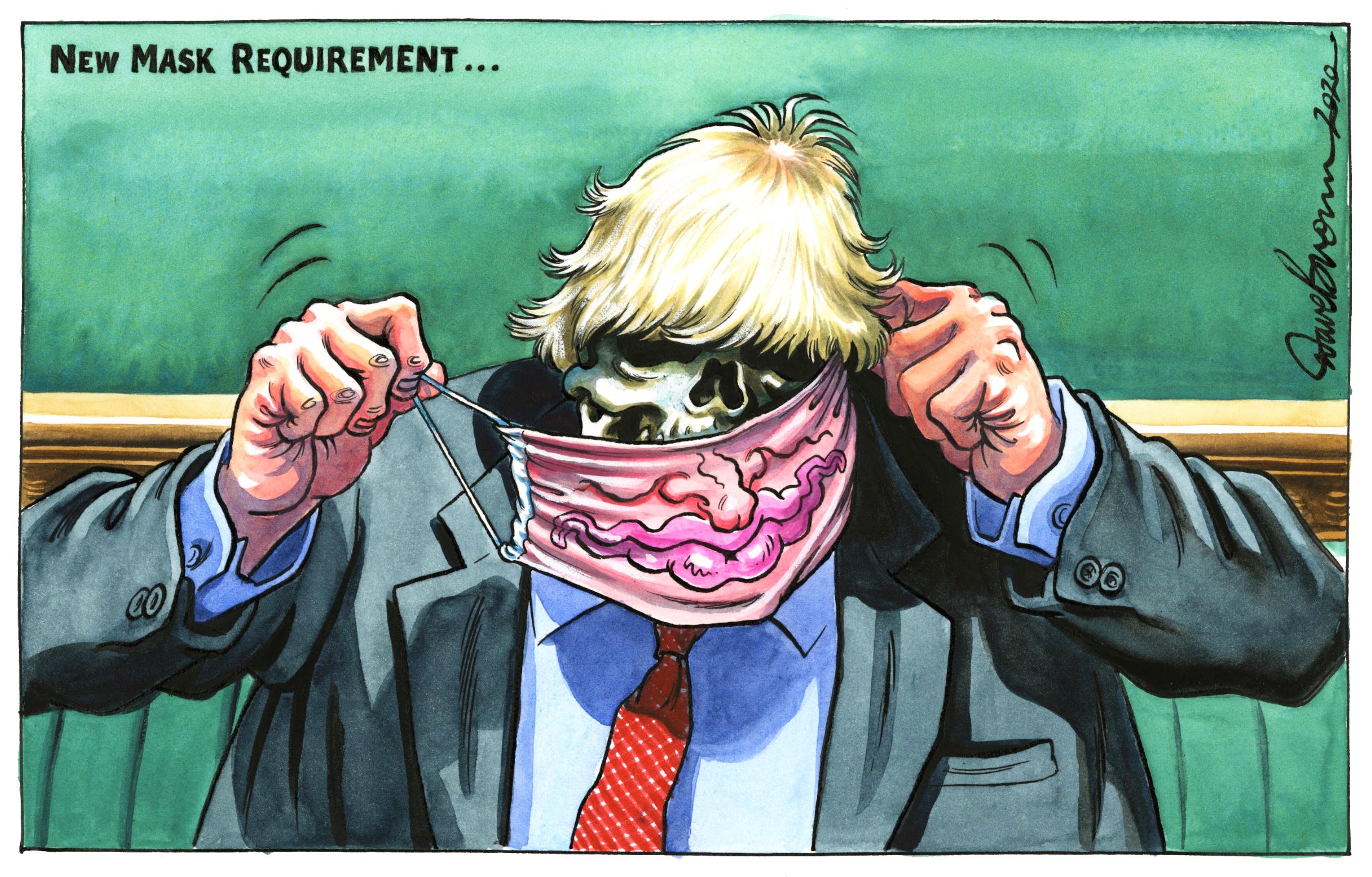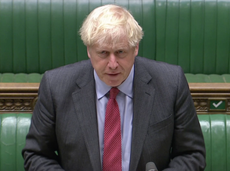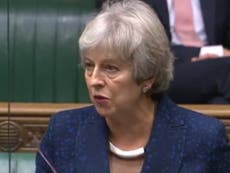With a second wave of coronavirus, now is not the time for a hard Brexit
Editorial: The government must now postpone the end of the transition period for a year

Will it work?
The latest plan for a partial lockdown attempts to strike a delicate balance between the demands of public health, non-Covid care in the NHS, the economy and the liberties and social lives of people facing, potentially, another six months of semi-isolation from friends and family. It seems almost cruel to point out that the span of these renewed restrictions will cover Christmas and Hogmanay, and indeed possibly as far as Easter 2021. Importantly, it will encompass the scheduled end of the Brexit transition period – a second economic disaster we can see coming all too well, but which could be averted by a single phone call from Downing Street to Brussels.
It will be a longer slog than the lockdown in the spring, even though the schools, shops, pubs and restaurants will be open for at least some of the time. Measures across the four nations of the UK are broadly matched, though more stringent in Scotland, and the messaging this time should be clearer than in recent weeks. There will still be local lockdowns during what Boris Johnson calls a crucial turning point. Sport is cancelled for spectators, the theatres still dark.
The crucial question is whether the public will put up with this, and for how long. There is no doubt that the public’s confidence in the government’s handling of the crisis has been waning, and with it their sympathy for renewed restrictions. Whereas in the first lockdown there was extensive compliance, because it was plainly a pandemic that few expected to arrive in this form at this time, and ministers were given the benefit of the doubt, there is now much more frustration at the government’s changes of plan, broken promises, mixed messaging and abject failure to deliver a viable test and trace system. People rightly wonder why the UK doesn’t have such a system after six months of trying, while other countries are further advanced. In that context, Mr Johnson was wise to drop any airy boosterish talk about “moonshots” and world-beating apps.
The public might also ask what the point of Eat Out to Help Out was now that the leisure sector is about to be half closed down again. Why, moreover, were we told that we should stop working from home only to be told to do just that a few weeks later? It is true that circumstances can change rapidly and so must the official response; but the point is whether the earlier relaxations have actually pushed the infection rate up and forced the government to slam the brakes on. Incompetence and poor judgement rather than bad luck seem to be to blame.
With luck, the public’s irritation, frustration and anger will be directed at an incompetent administration rather than in defying the new rules – which would be quite counterproductive, cost lives and lead to a more draconian lockdown. Still, after the Cummings affair and an increasing sense of fatigue there will probably be less obedience about than there was in the spring. Talk of new tough laws, hefty fines, police crackdowns, snooping and even sending in the army is silly; policing can only work by consent. Mr Johnson is asking an awful lot of people who don’t especially respect him or his team. Or to put it another way, he is asking for trouble.
Some renewed support for business and jobs will also be needed, but, in contrast to the spring, there is no sign of anything much being squeezed out of the Treasury. The furlough scheme, an appropriately substantial commitment, will end shortly, but the economy is far from back to normal; lopping an hour off pub and restaurant opening times will in fact halve their revenues, while lower league football, rugby and cricket clubs will lose 80 per cent of their usual takings from ticket sales. The damage to the economy will be real and the case for bridging finance and subsidies for the period until the vaccine arrives is overwhelming. In a year the economy should be back to something like normality if the vaccine is available as soon as is suggested. The alternative to “Furlough 2.0” is an economy in freefall – and an even more expensive and difficult rescue operation later on. The public finances will be shredded in any case.
Right now is no time for planning a hard Brexit. Given this new second wave, the government must now postpone the end of the transition period for a year. The British economy is not strong enough to withstand the impact of a second Covid lockdown, even a partial one, and then of a chaotic Brexit with punitive tariffs and broken supply chains. Hard Brexit, unlike Covid, can be averted or pushed back, if the political courage is there. If Mr Johnson cannot find such courage now, and he puts the country through this economic double hammering, then he doesn’t deserve to survive such a national betrayal.




Join our commenting forum
Join thought-provoking conversations, follow other Independent readers and see their replies
Comments